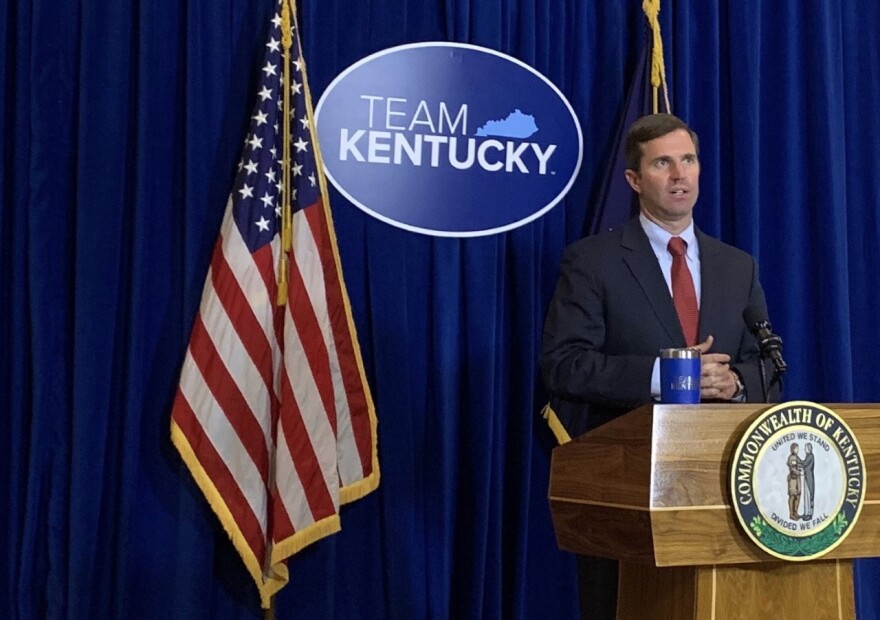Beshear's action on the measure — which will lower the state's individual income tax rate — comes after the proposal drew Democratic opposition as it moved through the GOP-dominated legislature.
The governor, who is facing a tough reelection campaign this year in Republican-trending Kentucky, announced in a social media video that he was signing the tax cut measure.
"I hope as we get through this period where, again, groceries cost too much, that this helps everybody
out there at least a little bit,” Beshear said.
The governor's action ended days of suspense over whether he would sign or veto the measure. A top Senate Republican openly dared the governor to veto the bill as the Senate debated the bill.
Responding to the governor's bill-signing decision Friday, the state GOP accused Beshear of trying to
take credit for Republican-backed policies.
“He has spent countless hours attacking Republicans for this policy approach and left the members of his own party out to dry on it,” the state Republican Party said in a statement. “What’s different between last year and this one? There’s an election this November.”
For Republican lawmakers, the newly signed bill is another step toward achieving a long-running policy goal to phase out individual income taxes in Kentucky.
The measure signed by Beshear will lower the state’s individual income tax rate by a half-percentage point to 4%, effective Jan. 1, 2024. It follows up on last year’s tax overhaul, which resulted in a reduction of
the tax rate from 5% to 4.5% at the start of this year.
Beshear vetoed last year’s bill revamping portions of the state tax code. He objected to provisions that extended the sales tax to many more services. Republican lawmakers easily overrode his veto.
As an alternative, the governor last year backed an unsuccessful effort to temporarily cut the state sales tax rate to take some of the sting out of rising inflation that fueled higher consumer prices.
Beshear on Friday acknowledged that the deeper income tax cut could have potential “long-term repercussions” for funding state services. But he
pointed to the state’s strong economy, which has fueled record-setting revenue collections, as justification for signing the follow-up tax cut.
In January, state General Fund receipts rose 6.2% compared with the same month a year ago, state Budget Director John Hicks reported recently. General Fund collections have grown 5.8% for the first seven months of the current fiscal year, he said. The General Fund pays for most state services, including education, health care and public safety.
Kentucky has set records for private-sector investments and job creation during Beshear's tenure as governor. Amid the economic growth, the
Democratic governor has acknowledged the hardships that inflation has caused for Kentuckians. He continued that message in his bill-signing
announcement Friday.
“Things are tough out there," Beshear said. "Inflation is real. And while gas prices have come down, a grocery store bill is still way too high. And while this issue is temporary, it’s still going to last for some time into the foreseeable future, and our
people need relief.”
Democratic lawmakers opposing the tax-cut measure said many Kentuckians won’t reap savings from the reduction. And they noted that last year’s legislation extended the state sales tax to more services, which they said created new tax burdens.
Beshear's decision to sign the top GOP legislative priority comes as a dozen Republican candidates compete for their party's nomination for governor
in the May primary.
Beshear's bid for a second term is drawing national attention to see if the popular incumbent can win again in the red state. Beshear has won praise for his responses to devastating tornadoes and flooding, as well as a string of economic development and infrastructure successes.


